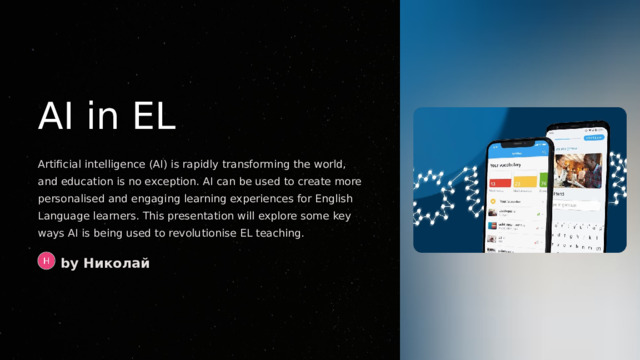
AI in EL
Artificial intelligence (AI) is rapidly transforming the world, and education is no exception. AI can be used to create more personalised and engaging learning experiences for English Language learners. This presentation will explore some key ways AI is being used to revolutionise EL teaching.
by Николай
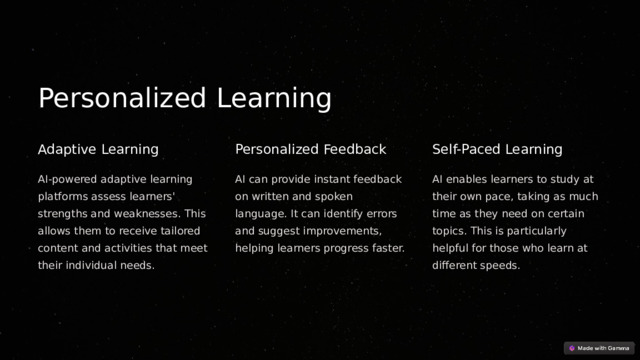
Personalized Learning
Adaptive Learning
Personalized Feedback
Self-Paced Learning
AI-powered adaptive learning platforms assess learners' strengths and weaknesses. This allows them to receive tailored content and activities that meet their individual needs.
AI can provide instant feedback on written and spoken language. It can identify errors and suggest improvements, helping learners progress faster.
AI enables learners to study at their own pace, taking as much time as they need on certain topics. This is particularly helpful for those who learn at different speeds.
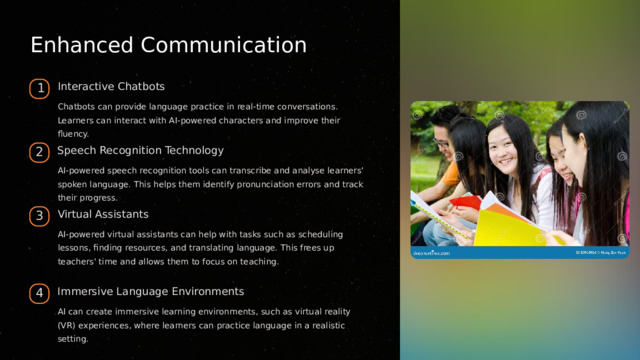
Enhanced Communication
Interactive Chatbots
1
Chatbots can provide language practice in real-time conversations. Learners can interact with AI-powered characters and improve their fluency.
Speech Recognition Technology
2
AI-powered speech recognition tools can transcribe and analyse learners' spoken language. This helps them identify pronunciation errors and track their progress.
Virtual Assistants
3
AI-powered virtual assistants can help with tasks such as scheduling lessons, finding resources, and translating language. This frees up teachers' time and allows them to focus on teaching.
Immersive Language Environments
4
AI can create immersive learning environments, such as virtual reality (VR) experiences, where learners can practice language in a realistic setting.
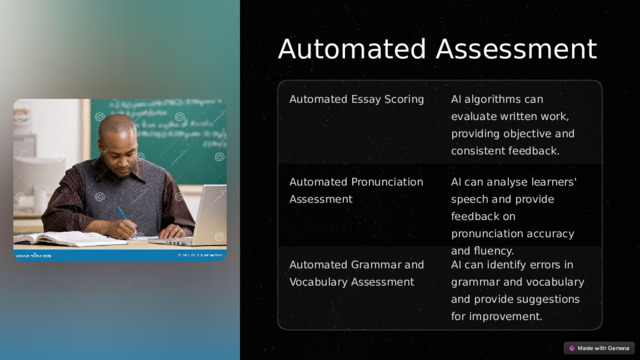
Automated Assessment
Automated Essay Scoring
AI algorithms can evaluate written work, providing objective and consistent feedback.
Automated Pronunciation Assessment
AI can analyse learners' speech and provide feedback on pronunciation accuracy and fluency.
Automated Grammar and Vocabulary Assessment
AI can identify errors in grammar and vocabulary and provide suggestions for improvement.
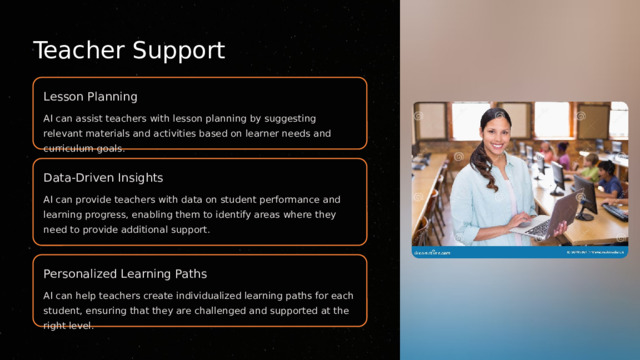
Teacher Support
Lesson Planning
AI can assist teachers with lesson planning by suggesting relevant materials and activities based on learner needs and curriculum goals.
Data-Driven Insights
AI can provide teachers with data on student performance and learning progress, enabling them to identify areas where they need to provide additional support.
Personalized Learning Paths
AI can help teachers create individualized learning paths for each student, ensuring that they are challenged and supported at the right level.

Accessibility & Inclusivity
Language Translation
AI-powered translation tools can break down language barriers and make learning materials accessible to a wider audience.
Personalized Learning Experiences
AI can tailor learning experiences to individual learners' needs, including those with disabilities or learning differences.
Global Collaboration
AI can connect learners and teachers from around the world, fostering cultural exchange and understanding.
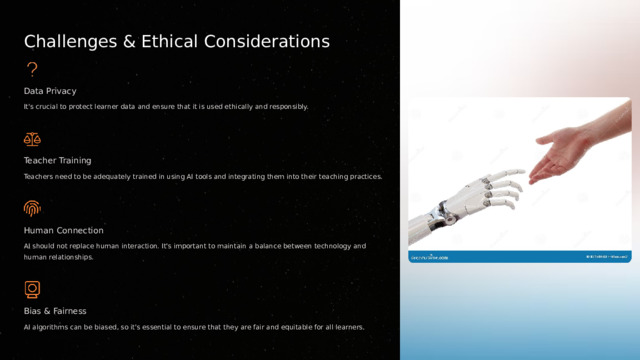
Challenges & Ethical Considerations
Data Privacy
It's crucial to protect learner data and ensure that it is used ethically and responsibly.
Teacher Training
Teachers need to be adequately trained in using AI tools and integrating them into their teaching practices.
Human Connection
AI should not replace human interaction. It's important to maintain a balance between technology and human relationships.
Bias & Fairness
AI algorithms can be biased, so it's essential to ensure that they are fair and equitable for all learners.
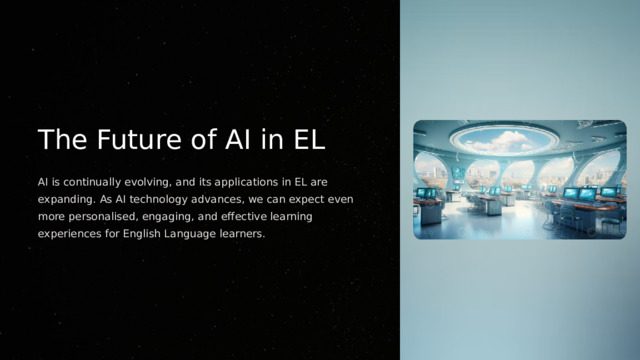
The Future of AI in EL
AI is continually evolving, and its applications in EL are expanding. As AI technology advances, we can expect even more personalised, engaging, and effective learning experiences for English Language learners.
























